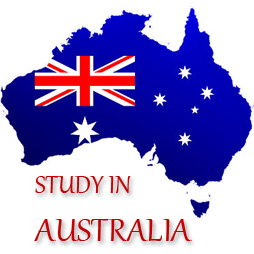


|
Tweet
Pin
It
|
 |
| » Introduction |
| » Education System |
| » Gateway to Australian Education |
| » How to Apply |
| » Student Visa Options |
| » Australian Scholarships |
| » Universities in Australia |
| » Australian Consulates |
The Australian education system provides primary, secondary and tertiary education.
Australian education system is distinguished from many other countries by the Australian Qualifications Framework (AQF). This framework governs all of Australian education, but it specifically focuses on the secondary (high school) and tertiary (undergraduate and post graduate) levels. The AQF has 10 levels, and links school, vocational and university education qualifications into one national system. AQF allows the students to move easily from one level of study to the next, and from one institution to another, as long as they satisfy student visa requirements. The system is simple and flexible enough that international students can come into it without a lot of issues. It also allows for a choice and flexibility in career planning.
School Education (Primary and Secondary)
School education is compulsory between the ages of six and sixteen (Year 1 to Year 9 or 10). School education is 13 years and is divided into:
Tertiary Education
Tertiary education includes both higher education (including universities) and vocational education and training (VET). There are ten different levels in the tertiary education system in Australia. The first 7 levels of the AQF are based on undergraduate studies that includes vocational, technical, associates, and bachelor's level degrees. The 8th level contains both undergraduate aspects and graduate aspects, and levels 9 and 10 are postgraduate education programs only.
Higher Education
There are three main types of higher education which lead to Bachelor, Master and Doctoral Degrees.
Bachelors Degree : In Australia, Undergraduate study has a duration of 3 years. After completion of undergraduate degree, students are awarded a Bachelor’s Degree. For admission to undergraduate study, students need to complete an Australian Secondary School Certificate of Education (Year 12), the overseas equivalent, or a diploma or advanced diploma from the Vocational Education and Training (VET) sector.
Bachelor Degree (Honours) may be completed as an optional, additional year of study following the three-year degree; or it may be awarded for academic achievement in degrees of four or more years.Masters Degree : A Master Degree is a course of independent research, traditional coursework or a combination of the two. Masters Degree is of 2 years after a Bachelors Degree, or one year of study after a Bachelor Honours Degree.
Doctoral Degree : The highest award offered by Australian universities, the Doctoral Degree is a 3 year research program. It is usually offered in two formats :
- Research Doctorate which mainly consists of supervised research.
- Professional Doctorate which consists of varying combination of coursework and research.
Besides these, Australian universities also offers Associate Degree, Graduate Certificate and Graduate Diploma Courses
Vocational Education & Training (VET)
Vocational education and training gives students practical skills for their careers. VET courses are offered by private institutions and TAFE (Technical and Further Education) colleges. TAFE is the largest provider of tertiary education courses in Australia with about 250 institutes and over a million students including about 41,000 international students. Depending on the field of study, the duration of VET courses will vary from 6 months to 3 years and covers a wide range of subject areas, which includes computing, design, management, hospitality, tourism, aviation maintenance etc. The VET courses are offered as Certificate I, Certificate II, Certificate III, Certificate IV, Diploma and Advanced Diploma Courses.
If you don’t meet the entry requirements to get into the course you want in Australia, there are many pathways that can help you reach your goal. This might include taking English language preparation or taking Foundation Studies.
English Language Studies
Australia provides reputable and quality English Language Intensive Courses for Overseas Students (ELICOS). These are specifically for people who come to Australia to study English either for educational purposes or for other reasons. The National English Language Teaching Accreditation Scheme (NEAS) functions to take care of the higher standard of Australia’s ELICOS programs. There are a range of courses exists which includes General English, English for Special Purposes (ESP), English for Academic Purposes, English for Teaching, Vacation Courses and Examination Preparation. The starting dates of courses are fairly frequent and they generally run from 5 week to 1 year. Several universities and TAFE (Technical and Further Education) institutions currently have ELICOS centers attached to their campus.
Foundation Studies
Foundation studies also known as bridging studies, give international
students the knowledge and skills for a smooth transition from learning
in their home country to undergraduate studies in Australian universities.
These types of courses are usually of 1 year duration. The students are
assessed and examined by their lecturers. Foundation studies are divided
into various streams like arts, science studies, etc. Many schools, vocational
education and training institutions, and universities offer Foundation
Studies courses. The common feature of foundation studies is that a university
allocates a provisional place in an undergraduate course for a student
who achieves the prescribed grades.
Find it Useful ? Help Others by Sharing Online
|
Tweet
Pin
It
|
Comments and Discussions
|
|